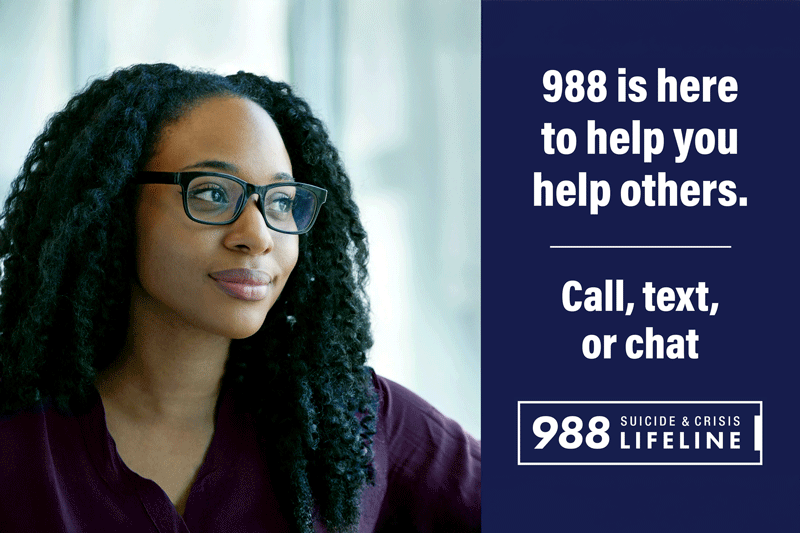The holiday season, typically marked by joy and togetherness, can also be a challenging period for many individuals coping with loss, trauma, or loneliness. Seasonal depression, also known as Seasonal Affective Disorder (SAD), often intensifies as the days get shorter and the weather becomes colder. While maintaining one’s mental health is crucial year-round, it becomes especially critical during winter months. This seasonal struggle can have devastating consequences, including an increase in suicidal thoughts and actions.
SAD, often casually described as the “winter blues,” can be a debilitating mental health condition that is much more than a simple seasonal mood shift. According to psychiatric research, SAD is often caused by reduced exposure to sunlight in the fall and winter months, which disrupts sleep cycles and adversely affects individuals’ serotonin levels. For many, this leads to persistent melancholy and fatigue throughout the season. Loneliness and isolation can worsen these emotions, especially for those without close relationships with family or friends during the holidays.
Nearly 24% of individuals diagnosed with a mental illness report that the holiday season significantly worsens their condition, while 40% experience a moderate decline in their mental well-being. These “holiday blues” can escalate into more severe mental health issues, such as clinical anxiety or depression, according to a 2023 National Alliance on Mental Illness (NAMI) study.
As SAD and clinical anxiety continue to affect communities across the U.S., there is a concerning potential for an increase in suicide attempts. Individuals without strong, reliable support systems of family and friends may feel particularly overwhelmed, sometimes leading them to consider drastic measures. Moreover, the lack of community support systems can exacerbate feelings of isolation around the holidays when daily routines are disrupted, and conversations often center around family gatherings and holiday celebrations.
Recent data shows 13.2 million adults reported seriously considering suicide, and 1.6 million adults reported making a suicide attempt. From the same data, nearly 50,000 lives were lost to suicide in one year – that’s one every 11 minutes.
Even for those who do have a support system, these byproducts of depression can be difficult to deal with, not only for the individuals struggling but also for their families, friends, and colleagues who want to help but aren’t sure how.
In this context, the 988 Lifeline emerges as an essential resource, providing a lifeline for those struggling with SAD or other serious mental health conditions. The 988 Lifeline is a necessary, effective resource available to everyone, free of charge. Offering confidential support 24/7 via call, text, and chat plays a crucial role in reducing the stigma around mental health, which can prevent individuals from seeking the help they need and deserve. Since its launch in 2022, the 988 Lifeline has responded to over 10 million calls, texts, and chats from people across the United States and territories.
As the Chief 988 Lifeline Officer at Vibrant Emotional Health (Vibrant), the nonprofit administrator of the 988 Lifeline, I am proud to lead a dedicated team from diverse professional backgrounds. Each member of our team understands the severity of the mental health crisis in America and the heightened need for mental health support during the winter months.
Through the 988 Lifeline, we tirelessly provide essential resources and assistance to those struggling with Seasonal Affective Disorder. We are continually working to optimize our support services to ensure access and inclusion within the 988 Lifeline to meet the unique needs of at-risk groups, including youth, rural populations, BIPOC communities, and LGBTQI+ individuals.
While the 988 Lifeline remains a vital resource, providing support to millions, raising awareness about SAD, and fostering open, honest dialogue about topics related to mental health are equally important. Vibrant and 988 are important pieces of the crisis care continuum, but the rest of the support network comprises families, friends, and community members.
As an increasing number of U.S. adults face mental health challenges, particularly during winter months, I encourage everyone to take the time to connect with others. Reaching out to your community, family members, or friends can significantly reduce stress and positively impact their day, often in ways you may not immediately realize. Engaging in discussions about your feelings, whether positive or negative, helps to destigmatize mental health issues.
Additional effective strategies for managing seasonal stress and SAD include participation in cultural, spiritual, or religious activities, volunteering with a local organization that interests you, and maintaining a healthy diet and lifestyle.
Suicide is a complex issue, yet it can be addressed effectively. In the U.S., for every individual who dies by suicide each year, 280 others experience serious thoughts of suicide but do not act on them. To reduce the number of preventable deaths, the crisis care continuum must evolve better to meet the needs of those in crisis and distress. This includes being prepared for the mental health impacts of the changing seasons and other significant events. If you or someone you know is struggling during the holiday season, text or call 988 or chat online at www.988lifeline.org.
Tia Dole, PhD, (she/her) is the Chief 988 Suicide & Crisis Lifeline Officer at Vibrant Emotional Health. Dr. Dole is a licensed clinical psychologist and a long-time advocate for the rights of those with intersectional identity. Prior to stepping into the role of Chief 988 Officer, Dr. Dole was the Executive Director of The Steve Fund, the nation’s only organization focused on the mental health and emotional well-being of young people of color. Additionally, Dr. Dole was the Chief Clinical Operations Officer at The Trevor Project, the world’s largest suicide prevention and crisis intervention organization for LGBTQ youth. Dr. Dole oversaw all of The Trevor Project’s crisis services programs as well as their volunteer community and increased their impact by a factor of four.
After completing her bachelor’s degree at Carleton College, Dr. Dole received her Master’s degree in Developmental Psychopathology from Columbia University (Teacher’s College), and she received a Fulbright Fellowship to study Forensic Psychology in Switzerland. She then completed her doctorate in clinical psychology at Fordham University. Dr. Dole is a published author and sits on several committees. One of her passions is normalizing mental health conditions within communities of color, LGBTQ communities, and helping people get access to services. She is based in New York/New Jersey.







I thank you for your words of truth to power. I thank you for the time and dedication you put into keeping the lifelines open. I just found out yesterday about a dear friend who took his life two days after Christmas. He was a kind and gentle person who waged private battles. I have only been able to come out of the fog induced grief of losing my mother 6+ years ago to suicide and now I can talk about her death without sobbing uncontrollably. We need prevention now more than ever, with so many substances available, the aftermath of a deeply isolating pandemic and national insecurity. Live every day to the fullest with as much joy as you can.